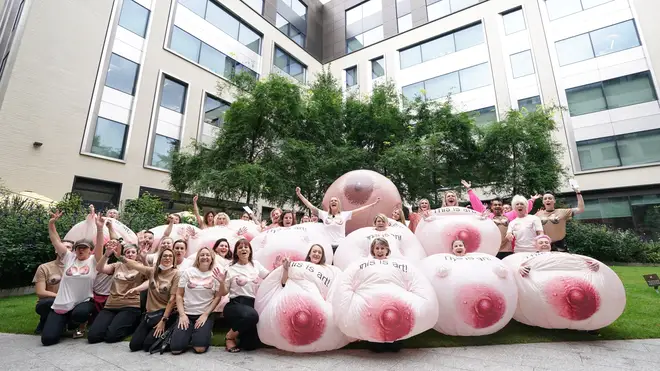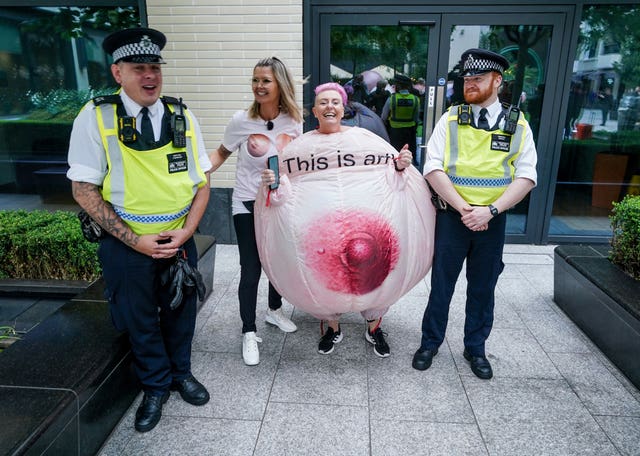
Oli Dugmore 4am - 7am
1 September 2021, 14:14

The group is calling for a rethink on how the platform moderates images of medical tattoos posted by breast cancer patients.
Protesters wearing inflatable breasts have converged on the London offices of Facebook to voice concerns about how the social network moderates some images containing nipples.
The group has said its aim is to enable medical tattoo artists and breast cancer survivors to freely post images of their experience and areola or nipple tattoos, which they claim has previously led to pictures being removed and accounts being blocked.
Facebook’s rules do not allow nudity. It does allow images of female breasts that include the nipple in some instances, including “those depicting acts of protest, women actively engaged in breastfeeding and photos of post-mastectomy scarring”.

But the protesters have urged Facebook to improve its algorithms to stop removing images posted by post-mastectomy patients who have had areola tattoos.
The social network acknowledged that its technology and content reviewers had, in some instances, failed to spot the difference between images posted of tattoos and those showing nudity, and encouraged users to clearly state when a tattoo was being shown.
The protest was organised by areola tattooing group World Medical Artists, and many of those attending wore inflatable breasts with the slogan “this is art”, or T-shirts showing such tattoos.
The group said the removal of images prevents breast cancer patients from discovering medical tattooists and the work they do, and penalised breast cancer survivors.
Facebook said it was speaking to World Medical Artists about how to prevent medical tattoo images from being removed from the site.
The social media giant said it had restored all removed content that had been flagged to it by World Medical Artists.
“Images showing post-mastectomy scarring and areola tattoos are absolutely allowed on Facebook and Instagram,” a company spokesperson said.
“We applaud the incredible work medical tattooists do for breast cancer survivors, and know our apps play an important role in helping these communities connect.
“By design, these tattoos often look extremely realistic, which means our technology – and even our content reviewers – don’t always spot the difference, so we do encourage people to make it clear when they’re posting an image that’s a tattoo.
“We understand how frustrating this can be. We’ve been working closely with World Medical Artists and are grateful for their input as we continue to explore new ways to avoid this content being mistakenly removed.”